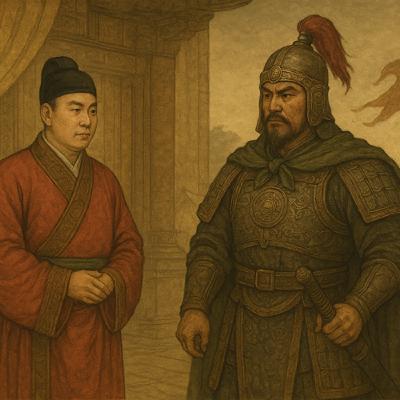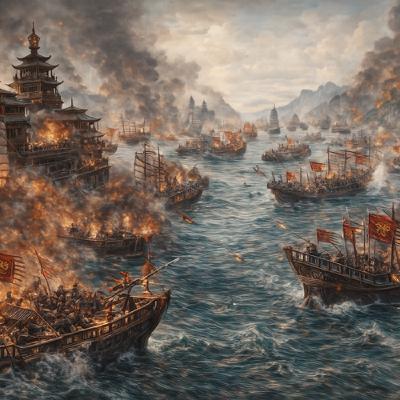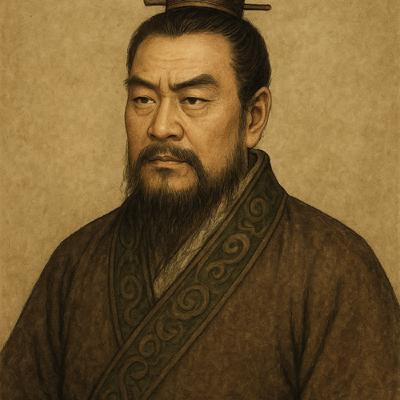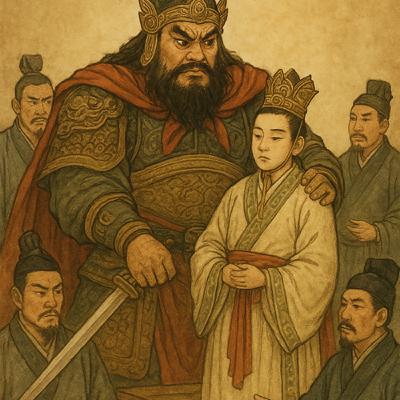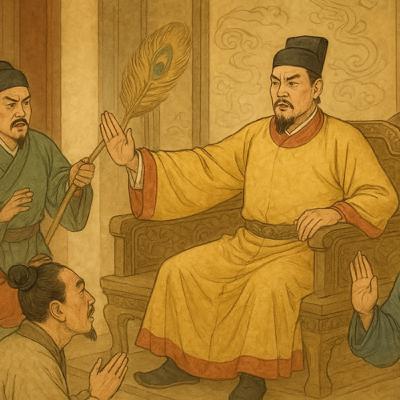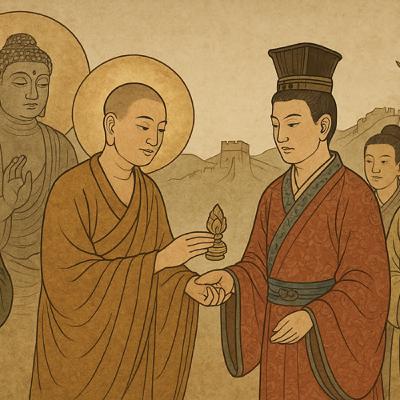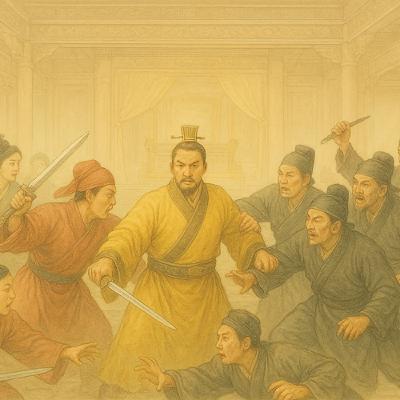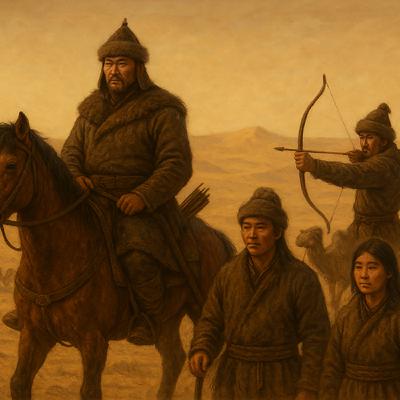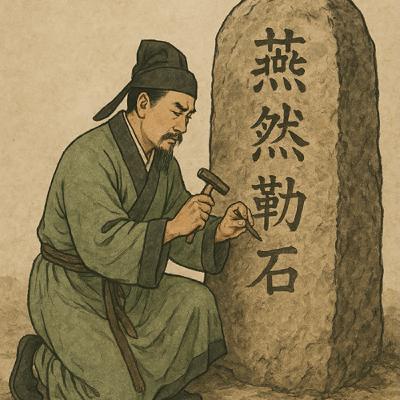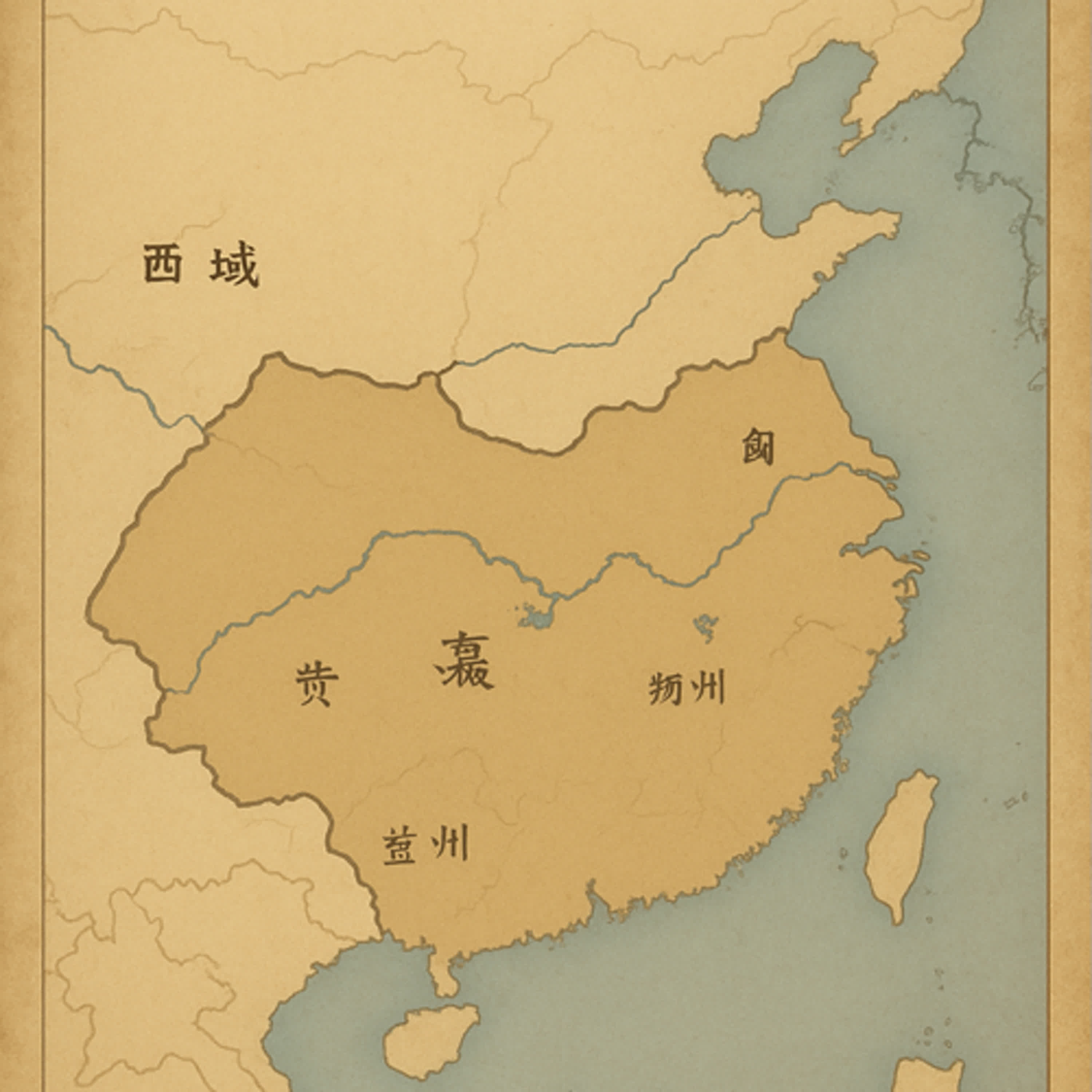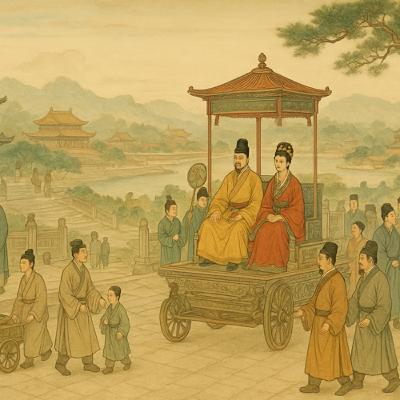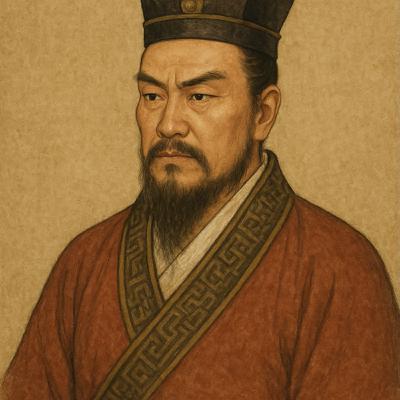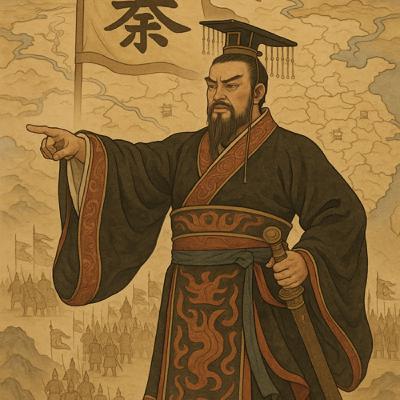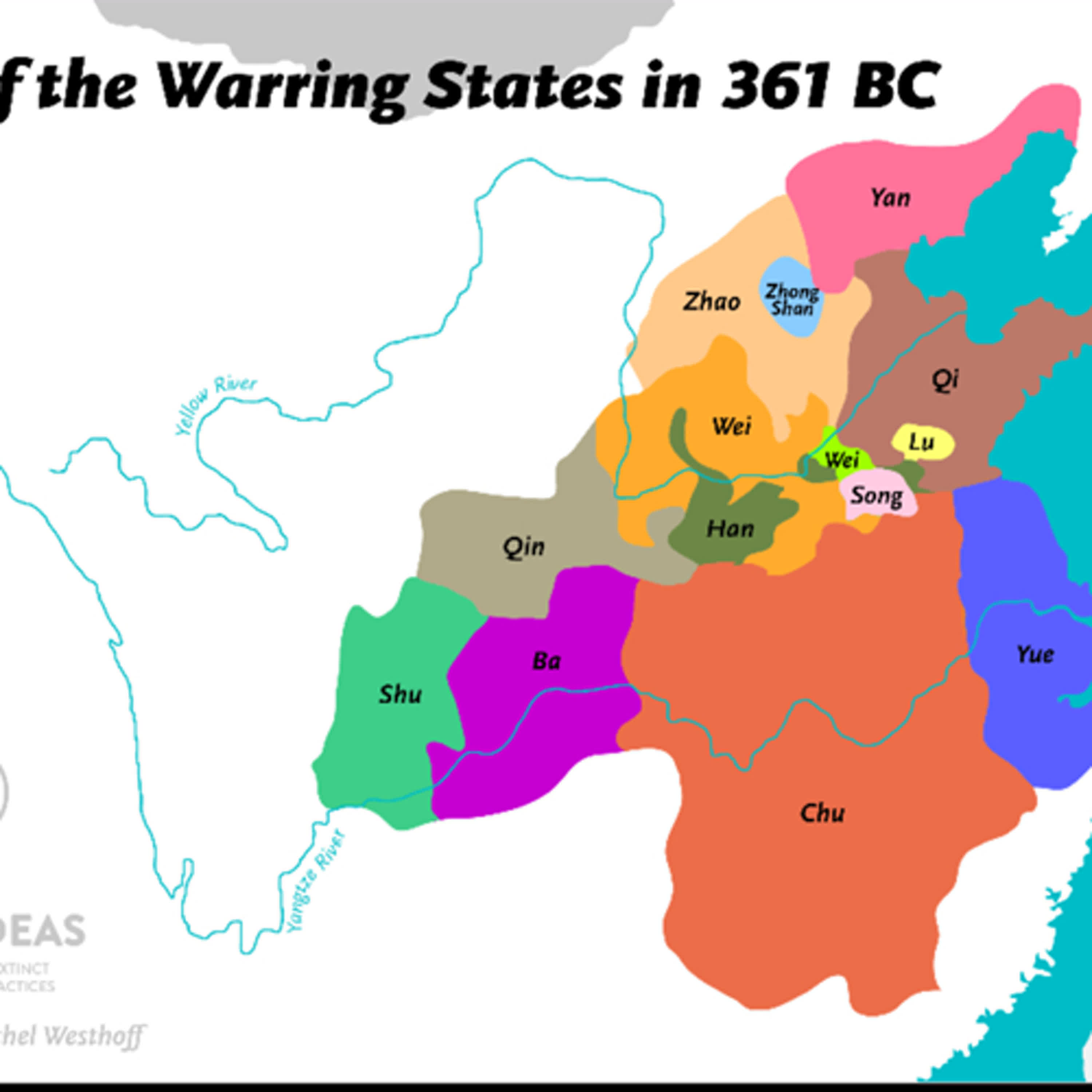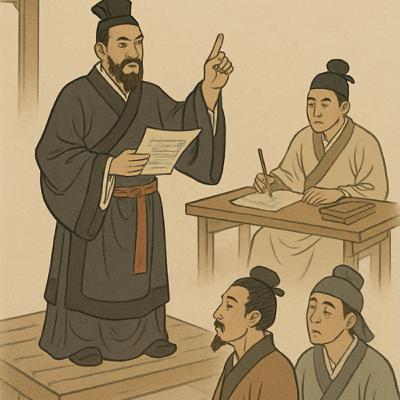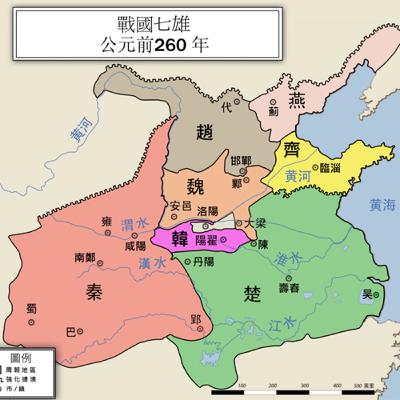When Trust Collapsed: The Psychology of Loyalty and Power in Late Han China's Gradual Fall
Description
Hello, friends. Today I want to discuss the Seven Masters of Jian'an period and make comparisons between the past and contemporary times—or rather, the modern age.
Historical Context: The Late Eastern Han Empire
The background is the late Eastern Han Dynasty, from roughly the 170s CE until just before its end. The empire experienced a clear three-way division of power. There's a Chinese saying: "三尺冰,非一日之寒" (Three feet of ice doesn't form in a single day). The meaning is that significant developments take considerable time to unfold.
Consider this parallel: In 1985, most Americans still believed the Soviet Union was stronger than the United States. Just six years later, in 1991, the world realized the Soviet Union had never been as powerful as it claimed, and it collapsed. However, this collapse shouldn't have been surprising—it was gradual and inevitable, with the seeds of self-destruction probably planted in the 1970s or even earlier.
The Power Structure: Eunuchs vs. Local Leaders
Now let me discuss what I believe was a critical dynamic in late Han China: the competition between eunuchs and relatives of imperial family members. The ultimate winners were the eunuchs.
The eunuchs occupy a tragic place in history. As castrated men, they were acutely aware of their incomplete masculinity. Interestingly, because they were considered part of the extended imperial family, they could move freely throughout the country, building up their power bases and factions. The eunuchs, however, could only control the capital—there weren't many of them, and they had no legitimate excuse to travel around the country.
Moreover, they knew that ordinary people recognized they weren't complete men but weren't entirely women either. Because of this awareness and the stigma of their physical condition, they tried to remain as mysterious as possible, rarely venturing outside the capital. This became an unspoken agreement or mutual understanding: the eunuchs would send messages to local leaders—governors, generals, or powerful families—indicating they had no interest in seizing their power and benefits, as long as these leaders showed loyalty to them and the puppet emperor.
This created a de facto division: inside the capital versus outside the capital. Each region operated almost independently, with its own leader having control over local affairs. The nation became fractured.
Gradual Collapse vs. Sudden Collapse
If we say the Soviet Union collapsed suddenly, I would argue that the Eastern Han Empire did not collapse suddenly. It took 20-30 years to be certain that the nation had been divided and would not be reunified in the short term, even though the emperor still nominally existed.
My conclusion is that the Eastern Han Empire collapsed gradually and slowly. The eunuchs seemed very powerful, but that was only in appearance. In fact, they only controlled the capital. Their actual power was limited—they could use moralistic pressure against local leaders, and the emperor commanded respect only by words, not through real authority.
Dong Zhuo Breaks the Balance
The person who destroyed this careful balance was Dong Zhuo (董卓). Originally just a local warlord, he was required to visit the palace to greet the emperor several times a year. After several such visits, Dong Zhuo realized the eunuchs weren't scary at all—they didn't even know how to command troops. So he decided to control the capital himself instead of letting the eunuchs control it. This marked the end of the power-sharing arrangement between eunuchs and local leaders. What happened next—who governed with dominant power—I'll discuss next week.
Impact on Society and Loyalty
Now let's discuss the effects on ordinary people. In the past, members of the imperial family would travel around the nation to show themselves to the public as delegates of the emperor. But during the eunuch era, they couldn't do this because they probably weren't brave enough to show their faces to the masses. They would need heavily guarded carriages instead of riding horses and facing people directly.
This erosion of loyalty had profound consequences. When people realized the emperor was merely a puppet exercising symbolic power, they experienced confusion about authority: Whom should they obey? Officially, they still had to maintain the appearance of loyalty, but local leaders increasingly acted like emperors themselves. Eventually, local officials, bureaucrats, and civilians transferred their loyalty to local leaders. They no longer cared who the emperor was or who controlled the capital—they only cared whether their local leader would maintain their basic living standards.
Philosophical and Religious Shift
This confusion extended to philosophy. Officially, the emperor was still supreme, but practically speaking, he was useless and insignificant. The Confucian school of thought that emphasized loyalty to the emperor became unattractive, especially to the educated and literate classes.
On the other hand, Buddhism and Daoism—which offered ultimate truths and comforting teachings—helped people cope with reality and internal conflicts. This is one reason why, starting in the later part of the second century, more of the population turned to schools of thought like Buddhism and Daoism.
The positive aspect was spiritual exploration. The negative aspect was that people interpreted these philosophies in self-serving ways, shifting loyalty from the emperor to local leaders, and then to an even narrower circle: close relatives, extended family members sharing the same surname, or even just the nuclear family. Mutual trust collapsed or decreased seriously—a very serious impact from this era that continued for a very long time.
Comparison to Modern America
Now, to compare with today: I've mentioned the Soviet Union; now let me discuss the United States.
I truly believe Americans are very lucky that their Founding Fathers learned from past differences and either invented or created a federal system based on republic and liberty. They established a clear division of power—not just separation of administration, legislature, and judiciary, but also between federal, state, and local levels.
From my understanding (forgive me if I'm wrong), the President's authority is primarily over foreign affairs and national security. For internal affairs, the President doesn't have authority to make orders—it's more like a coordination role. If there's conflict, the President can mediate and resolve it.
State governors deal mostly with issues involving other states, while the rest falls to local authority—mayors or county commissioners handle local matters. Even the federal government, though the President is the chief, has many departments, and department heads have quite high authority to make their decisions. When there's interdepartmental or intercity conflict, the county council chairman can intervene.
Why Centralization Is Dangerous
The power and authority are widespread and separated. Looking at the past—not just ancient history but even today in Taiwan and certainly in China—it's still a mess because power is always centralized and unified.
Now you can see why Dong Zhuo, the warlord and general, wanted to be the dominator himself instead of remaining just a local leader—he would gain far more power. Remember that many governors and generals never attempted this. Of their previous positions over nearly two hundred years, only a few had the ambition or the ability to run for supreme power. Many probably retired because they knew they couldn't win such a contest.
But here's my key point: The President of the United States doesn't have that much more power than a governor of a major state. So Americans know what they should do and when they should step back.
The Enduring Problem in Chinese History
Looking at Chinese history, because it's a centralized system, that position represents ultimate power and ultimate authority. Everyone interested in obtaining that position will do whatever it takes to seize it. The only thing that sometimes kept people in their place was fear.
After the eunuchs' era in the Eastern Han Dynasty—something that occurred over 1,800 years ago in the second century, well before our current 21st century—a pattern emerged: Once someone became a governor or general and believed he had enough resources to challenge the emperor, he would do so. There's no modesty at all, only greed.
Conclusion
This may be the worst, longest-lasting impact of the first era of eunuchs in ancient Chinese history, which occurred in the second half of the second century. This is something that resonates even today—we still need to find a way to fix it.
Thank you all for listening. That's it for today.
#Eunuchs in Chinese History#Fall of empires comparison#Loyalty shift psychology#Trust erosion#Identity confusion#Coping mechanisms
Join as a free member to stay updated with the latest information: https://open.firstory.me/join/ckeiik73n1k6i08391xamn9ho
Make a small donation to support this program: https://open.firstory.me/user/ckeiik73n1k6i08391xamn9ho
Leave a comment to tell me your thoughts on this episode: https://open.firstory.me/user/ckeiik73n1k6i08391xamn9ho/comments

